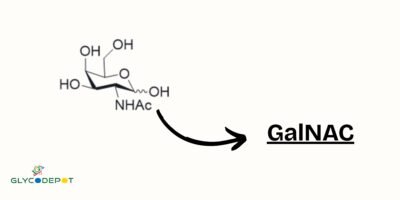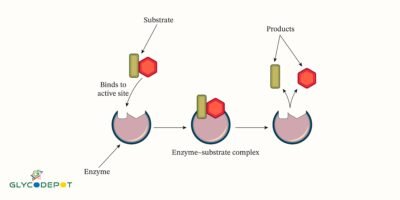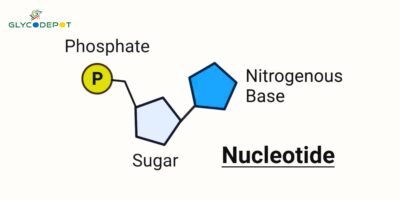Glycoscience is the study of technology and science with a sharp focus on carbohydrates and Carbohydrate research. Saccharides, glycans and glycosylation along with carbohydrates is a part of Glycoscience. It is widely and commonly known as the “study of carbohydrates”.
It focuses on the mechanism, structure, metabolism, function and different applications of carbohydrates. It is a study helpful in assessing the role of carbohydrates in biological system. The study also evaluates its role to the lipids and proteins.
Relationship to glycobiology and biochemistry.
Glycoscience chemistry and chemical biology is inter-related. It encompasses the role of carbohydrates, its chemistry (biochemistry) and biology (glycobiology). Biochemistry includes glycoscience and glycobiology of the carbohydrates and Carbohydrate research.
This chemistry and chemical biology is the study related to the evaluation of the deeper world of the carbohydrates and how they respond and act in the biological systems. Biochemistry involves the basic understanding of the chemical concepts and terminologies involved with the carbohydrates. Glycobiology refers to the biological mechanisms and interactions of carbohydrates.
Basic terminology: glycans, glycoproteins, glycosylation.
Glycans: Also known as the polysaccharides and Oligosaccharides, glycans are the carbohydrates present on the proteins and cells surfaces. It plays a crucial role in recognition, structure and immunity. “All cells are coated with glycans.”
Glycoproteins: It is the protein molecule with chains of carbohydrates present on the cells surface, within the cells and the bloodstream.
Glycosylation: Glycosylation is known as the process in which glycans attach themselves to lipids and the proteins through the utilization of enzymes. The process takes place within the cells and affects the function and destination of proteins within the cells.
Glycobiology vs Glycoscience: Glycoscience and the glycobiology are closely related to each other. However, they are different. Glycobiology is one of the fields of it. It’s aim is to assess the functions and biological roles of glycans. Glycobiology is also the study of immune response of the cells and their communications.
Why Glycoscience Matters

Importance in understanding human biology, disease mechanisms, immune response.
Importance of glycoscience is immense. is Glycan is present in each of the cells and the proteins within an individual’s body. They are responsible for helping the proteins fold within the body, communication and biological signals. This way it can help in elevating an individual’s understanding of human biology and Glycoscience chemistry, and chemical biology. It offers immense opportunities in healthcare.
Abnormal glycans are related to cancer cells, infection and genetic disorders. Change in glycosylation can help reveal the disease mechanisms. Glycans also impact the vaccine, antibiotic and inflammation-related activities. It means that the importance of glycoscience as the study of carbohydrates and the Carbohydrate research and also refers to the ability to shape and understand immune responses.
Role in drug design, cancer research, and vaccine development.
Applications are not only limited to study of cells and glycans. Importance of glycoscience involves its ability to help in cancer research, the scope of Glycoscience in medicine and vaccines. It is a part of chemistry and chemical biology.
Lot of biological drugs have glycoproteins in them. Glycosylation can help with the safety and effectiveness of medicine. Abnormal glycan patterns often indicate presence of tumor cells.
Study of such patterns can be beneficial for detection of early cancer. Glysoscience is the study that can help with cancer research as it assist in blocking signals based on glycans preventing growth of certain tumor cells.
Viruses such as HIV, influenza, and SARS-CoV-2 utilize the glycoproteins for infection of the cells. They mimic glycans hence glycoscience can help with more stable, powerful and targeted vaccine growth.
Example use cases: monoclonal antibodies, COVID-19 spike protein glycosylation.
Glycans help in protecting the virus against the immune detection. Understanding the functions of glycans can help in design more effective vaccines. They should be able to tune autoimmune diseases, cancers and infections.
Key Areas of Glycoscience Research
Structural analysis of glycans
Importance of Glycoscience aims at the idea that it is important to understand the structure of glycans for evaluating their function with respect to disease and biology. It may be complex to understand their mechanisms and biological activities of the glycans. Analysis of the structure of glycans may help assess immunity, infection and the cell signaling. It is associated with study involving comprehensive Glycoscience chemistry and chemical biology.
Glycan-protein interactions
Glycoscience research has contributed to a better understanding of the 3D structures of proteins binding glycans. X-ray, NMR and other technologies can assist in the investigation of glycans fitting into protein binding pockets. It is also an integral part of comprehensive Glycoscience chemistry and chemical biology.
Carbohydrate synthesis
The process involves the creation of glycans in labs, understand their complex structure an functions. Applications of through carbohydrate synthesis may include biotechnology, Glycoscience in medicine and the science of materials. This indicated that importance of Glycoscience is growing with more focus on chemistry and chemical biology.
Enzymes involved: glycosyltransferases, glycosidases
Glycosyltransferases and glycosidases are related to the modifications and synthesis of the glycans. They have a crucial role to play in glycan remodeling, metabolism, as well as glycosylation disorders.
Emerging tech
Mass spectrometry: MS helps in determining glycan mass, structure, and composition. It is a powerful tool in the analysis of glycans. It can help with the analysis of the glycosylation patterns found in the therapeutic proteins.
NMR: 3D structural information related to the glycans, determination of branching and linkage of the complex carbohydrates is possible with NMR.
Other technologies: Emerging technology indicates towards the possibility of glycan structure (can be understood through comprehensive Glycoscience chemistry and chemical biology) prediction. Glycan-protein interactions is now possible with machine learning that can help with glycomics research, and improvement of cancer diagnostics, therapeutic proteins and vaccines.
Applications of Glycoscience
In biotechnology: improving therapeutic proteins
Applications of Glycoscience in biotechnology also spreads to improvement of therapeutic proteins. This happens with the optimization of glycosylation for better efficacy, stability, immunity, production. Importance of Glycoscience and comprehensive cannot be ignored as it is also helpful for the development of biobetters, biosimilars as well as personalized therapies.
In diagnostics: biomarker discovery
The role and importance of Glycoscience study aims at aiding the biomarker discovery through the identification of glycan patterns on the cells and the proteins that are disease specific. Glycan changes can help with early detection and anticipation of growth of the disease. It is an integral part of Applications of glycoscience.
In microbiology: bacterial glycosylation pathways
It is important application of Glycoscience as it helps anticipate the production and utilization of glycans through bacteria. Importance of Glycoscience reveals that this study can also assist in the closer evaluation of vaccines, development of fresh antibiotics and their diagnostic tools for Glycoscience chemistry and chemical biology.
In personalized medicine
Applications of Glycoscience in medicine can help in tailoring the treatments through the better understanding of the glycan profiles. It can further assist in understanding the proper state of the disease, response of the treatment, and the genetic differences. Comprehensive Glycoscience biology and medicine is the assessment of glycans and how glycosylation affects and is related to disease, health and therapeutic development.
Educational Resources in Glycoscience
Learning paths (students, researchers, industry):
- iGlycoMab – interactive tutorials on glycan structures and functions
- NCBI Glycans Resource & CAZy database tutorials
- Essentials of Glycobiology (Cold Spring Harbor Laboratory Press), The definitive textbook—freely available online.
- Carbohydrates: The Sweet Molecules of Life by Robert V. Stick and Spencer Williams
- A readable introduction for students and early-stage researcher
The Future of Glycoscience
Current trends and predictions
Driven by the newer technologies, comprehensive Glycoscience is consistently growing. Much of credit goes to the recognition of glycan and their importance in the fields of medicine and biology.
AI: AI has been crucial in determining the complex mechanism and structure of glycan, anticipate the interactions between glycan and proteins, with glycoengineering optimization for the purpose of drugs development.
Genomics: Glycan profiling and genomics can be combined to understand the diseases associated with glycosylation, opening doors for personalized treatment.
Proteomics: It can help understand mechanisms of the diseases and drug design by also further mapping out the glycosylation sites.
Global research initiatives and funding
CFG, Glycosciences Network, NIH Glycoscience Research Program, National Science Foundation (NSF), Global Health Initiatives (WHO, GAVI), etc.
Frequently Asked Questions
What is glycoscience the study of?
Comprehensive Glycoscience is the study of glycans and their impact on the lipids, proteins, and different molecules present in the biological system. It elaborates on the structure, biology and function of the carbohydrates and rapid Carbohydrate research.
How is glycoscience different from genomics?
Glycoscience and genomics belong to the biological research fields. Comprehensive Glycoscience is the study of the glycans whereas Genomics is the study of DNA and genes in organisms.
What are glycosylation disorders?
Glycosylation disorders comprise of some rare genetic conditions that takes place with the disruption of glycosylation. For example, PMM2-CDG and ALG6-CDG.
Where can I study glycoscience?
You can study the subject at Universities, research institutes and graduate programs that offer comprehensive Glycoscience Research Programs. Other sources are online courses, workshops, Glycoscience summer school and specialized trainings.









